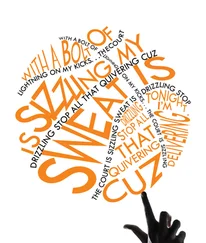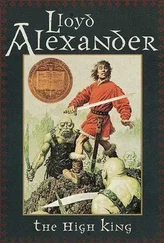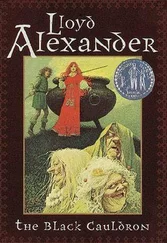“Maybe you can persuade her.”
We sat there for a few more minutes finishing our canned lunch. The officer rose from his chair and said, “Let’s go.”
I had no choice.
When we arrived, I was afraid to knock on the door. I wasn’t certain why, but a sense of dread filled me. The officer urged me on. I knocked, and a few moments later my aunt answered. She wore a simple housedress. The Nazi jewelry had disappeared from her attire. She gasped in surprise and covered her mouth with her hand, but when she saw the American officer and the MP, her eyes grew cold.
“Why are you here?” she asked me.
“They wish to talk to you,” I said.
Aunt Reina hesitated for a moment and then opened the door. She drew me close and whispered in my ear, “They must stay in the living room.”
The officer observed our whispering. “No secrets.”
My aunt turned and led the three of us into the room. We took seats around the fireplace. The pillows, the rugs that had been embroidered with swastikas, were gone. The room was plain and dull in the afternoon light. The large portrait of Hitler that had hung in the dining room also had disappeared.
My aunt sat across from us on the couch. With no display of emotion she said to me, “Your uncle is dead.”
I started toward her, but the officer stopped me. The shock of my uncle’s death stunned me. Despite my aunt’s politics, I felt sorry for her. She had lost the man she loved.
“He hanged himself when he learned of the Führer’s death,” she said. “He had talked about it for days—an American occupation, the fall of the Reich. I begged him. ‘Governments come and go,’ I said.” Her eyes moistened and she took a handkerchief from her pocket.
By killing Hitler, I was partially responsible for my uncle’s suicide, an irony that struck me hard. But I couldn’t dwell upon it. One way or the other, Hitler would have ended up dead.
The officer nodded politely to my aunt and said, “I need to ask you some questions about the Party structure in Berchtesgaden.”
Reina chuckled. “Go ahead. You won’t get much because I don’t know much.”
I heard footsteps.
The officer and the MP jumped up and drew their pistols.
I turned my head and saw a man’s legs on the stairs. He wore a loose-fitting pair of black pants and scuffed shoes.
My aunt rose from her chair. “Go back! I told you to run, to get away when you could!”
“Come down slowly,” the American officer said, and kept his pistol poised on his target.
The man came down with his hands up.
“I’m tired of running,” the man said.
I fell to my knees and sobbed. The man on the stairs ran toward me.
“Halt,” the officer shouted.
My husband stood before me. My legs buckled and Karl rushed toward me. He pulled me up and, weeping, I fell into his arms. Time stopped as I collapsed in his embrace.
“I told you,” he said as he covered my face with kisses. “Never give up.”
I put my head on his chest, thinking I was clutching a phantom. I felt the flesh and blood of his shoulders and chest, but it was hard for me to believe he was alive. “I did it for you,” I whispered. “I survived because you told me to.”
“I never doubted you.” He cupped my face with his hands for a time and then said, “Step aside for a moment, my love. I have unfinished business.” He opened his jacket slowly to show the Americans he was unarmed. Then he held out his hands. “I am SS Captain Karl Weber. I am surrendering to you.”
“Do we have to use restraints, Captain Weber?” the officer asked as he patted my husband down.
Karl shook his head.
“I’ll take you at your word,” the officer said. “Please don’t try to escape or we may have to shoot.”
Karl saluted the men. “No, sir, I will not. I want to be with my wife.”
* * *
We left my aunt’s a half hour later after the officer made radio contact with the camp. We traveled back to Munich. Karl was immediately whisked away by the Americans and it was two long weeks before we saw each other again. We sat across from each other at a long wooden table. Karl was dressed in camp clothes and looked tired, but otherwise seemed in good health. We held hands as we talked.
“I still can’t believe you’re alive,” I said. “I pinch myself every day and thank God for this miracle.”
“I believed,” he said. “I had to believe; otherwise, I couldn’t have gone on.”
I looked at him, full of the questions I needed to ask in the short time we had together. One, in particular, troubled me. “Who died in that terrible blast and fire? I always felt in my heart you wouldn’t commit suicide.”
“Franz. He never recovered from Ursula’s death.” Karl sighed, his face tinged with melancholy. “He was wounded at the Eastern Front—not badly, but enough to knock him out of service for a few weeks. Then, when the bomb plot failed, he knew we would both be implicated. The morning I left, I met him near the dark field where von Stauffenberg stopped you. Franz asked me to switch papers, which I did. He said he had a plan to save our lives. I had no idea what he intended to do. Franz kissed me on the cheek and I should have known what was going to happen.
“I had formulated a plan to get to the railroad siding undetected and walk down the tracks. The guards knew me and let me pass through checkpoints. Everyone was in an uproar. I told them the Führer had given me orders to search for traitors. The last obstacle I faced inside the perimeter was the electric fence. I was able to find a tree with branches extending over it, one that had not been cleared. I climbed it and then jumped to the ground. The forest, Hitler’s hiding place, worked to my advantage. If I hadn’t been on my way, I would have turned around and tried to stop Franz, but I was already far away from Rastenburg when I found his note.”
“Note?”
“Yes, it was stuck in his papers. He explained in detail how he was going to kill himself by blowing himself up. It was better that he died than I, he said, because he knew you and I could go on together. There was no hope for him. The body must not be identified, he said; otherwise, the Gestapo would be on my trail. That’s why his death was so horrific. He doused himself in gasoline and set himself on fire. The fire burned over him until it ignited the bomb he carried. He succeeded; otherwise, they would have questioned you.”
Karl’s jaw quivered and he wiped a tear from his eye. “I tried every trick I could to disguise myself. I had to destroy his papers and the note. They could never be found upon me, or I would be a dead man. I shed my uniform as soon as I could.”
I stood up and looked past the American guard to the light that filtered through a window at the end of the barracks. Far off, thunder rumbled over the mountains. “Night and day, I wondered if you were really alive. Every time I thought about giving up, you came into my head. A man took me to Spandau from Berlin. His name was Karl. When we got there, he disappeared, just like you. I thought he was an angel sent to guide me, perhaps your spirit in another man’s body.”
Karl clasped his hands. “No, I’ve been in the south for a long time. I remembered your aunt’s and uncle’s names from our early days together. It was a struggle to get to Berchtesgaden. I slept in barns and fields some nights. Sympathetic farmers would welcome me now and then. I even worked a few days for some of them. When I arrived, I told your aunt and uncle I was married to you. I showed them our wedding ring and they took me in. I lied about my involvement in the plot to kill Hitler because your uncle would have turned me in. I pretended to be a spy for the Reich and a good Nazi. I begged them to tell no one I was here. I told them we had been separated when the Wolf’s Lair fell, and that you were still in service to the Führer. They were happy to know that.”
Читать дальше












